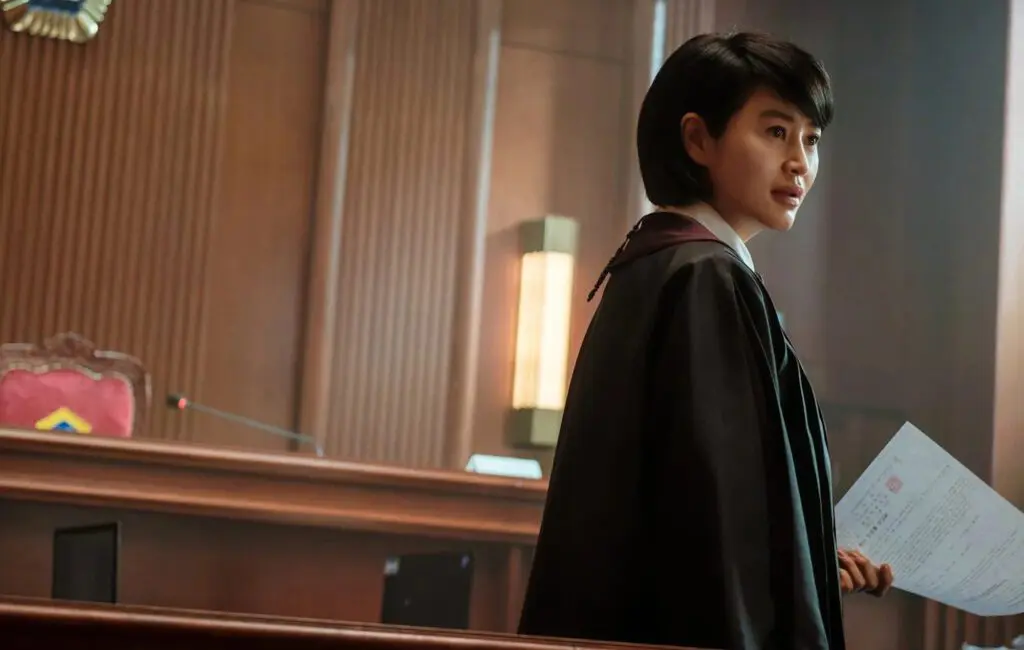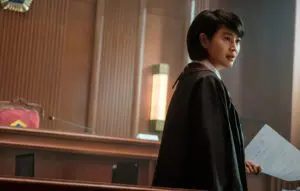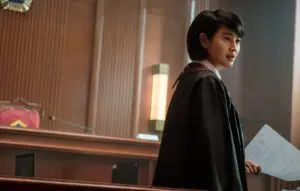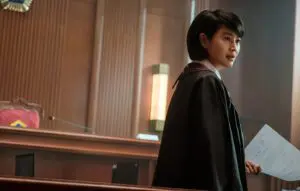Summary
In its second case, Juvenile Justice is more coherent and affecting, though it can’t help but fall into some of the same traps.
This recap of Juvenile Justice season 1, episode 3 contains spoilers.
The distribution strategy for Juvenile Justice is interesting to me since it seems so well-suited to the usual weekly release that Netflix employs for most of its k-drama slate. After a complex initial case spilled across two episodes, the second is contained to just this hour, and the episode is better for it. Some development for the core characters occurs, and the knock-on effects of Ji-hu’s murder are still felt, but the mostly singular focus makes for a more coherent and emotionally affecting case that actually exercises some restraint — at least until it doesn’t.
Juvenile Justice season 1, episode 3 recap
The events of the first two episodes have created a media firestorm, particularly over Seong-u’s comparatively light sentence, and there’s a public push for legislative changes to the Juvenile Act that prevents offenders of a certain age from being subject to the full extent of criminal justice. Thanks in large part to Eun-seok berating her, Seong-u’s mother isn’t going to appeal his sentence, but there are many others who don’t think it’s anywhere close to enough, and given Kang’s political ambitions and moderately well-known public persona, it’s all a bit of a problem.
But the courthouse has bigger fish to fry in the meantime, mainly the case of Yu-ri, the girl who staggered to the courtroom door at the end of the previous episode. She collapses in Eun-seok’s office while looking for Tae-ju, and is taken to hospital. Some attending detectives explain that she’s presumed to have been assaulted, and we get some backstory — she has no legal guardian after her parent’s divorce and was raised by her grandparents, both of whom are sick. Her grandfather has even been hospitalized with dementia. In a series of cutaways, we see that Yu-ri was very much off the rails, so her history of theft and prostitution makes sense.
Almost contrary to her attitude in the first two episodes, Eun-seok is adamant that something else is afoot here. Yu-ri has self-harm scars and her injuries suggest long-term abuse, so Eun-seok foots the medical bills and advises Yu-ri to stay and be cared for while she looks into it. She seems especially serious about domestic violence and the problem Korea has in how such cases are closed, and this is made clear when she speaks out antagonistically at a seminar, which results in her getting another telling off from the image-conscious Kang.
But Eun-seok isn’t willing to drop Yu-ri’s case, so she goes to her place of work — a salon where she wasn’t well-liked — asking questions, and learns of a strange man who sees her frequently; often, after encounters with him, her face would be bruised and she’d have to take time off work. It’s easy to assume prostitution, but it’s hard to say since Yu-ri remains tight-lipped, and when Eun-seok goes to see her in the hospital, her grandmother reinforces the idea that she’s clumsy and frail and falls all the time. Something is being covered up, but what?
At the convalescent hospital where Yu-ri frequently visits her grandparents, Eun-seok learns that her father is in fact still around, and is a very angry man who sounds very much like the one described at the salon. This means that Yu-ri is being abused by her own father, which explains her grandmother’s secrecy. When she leaves the hospital, she hooks back up with a runaway gang who all beat her, leading her back to the convalescent hospital, where she tearfully breaks down to Tae-ju. Eun-seok, though, has her arrested, which causes massive friction between her and Tae-ju.
Let’s talk about Tae-ju for a minute, since we learn some things about him here. He has a very good relationship with his mother, who regularly brings him food to the office, but he clearly has a past he’s somewhat mysterious about. In the courthouse, his old neighbor from Busan recognizes him, but he claims not to be from there, and it also seems like he denotes to a Busan detention center. In flashbacks, it’s clearly implied that Tae-ju was abused by his father, which explains why he’s so passionate about the case, but it’s clear there’s more to his backstory to still be unpacked.
Anyway, as it turns out, Eun-seok having Yu-ri arrested was just a ruse. It was a way to get her to stand trial so that she could expose her father’s abuse and show her the justice system doing its work. Yu-ri’s grandmother reveals that Yu-ri’s father was also abused, and she blames herself for perpetuating the cycle. When Yu-ri’s father learns that his own mother dobbed him in, he attacks her in the court, but Tae-ju, in a fit of rage, almost strangles him to death. It’s in this whole court sequence that Juvenile Justice lingers a little too long on flashbacks detailing Yu-ri’s abuse at the hands of her father in an obvious effort to shock, but it’s a dour ending to an episode that was definitely an improvement.
You can stream Juvenile Justice season 1, episode 3 exclusively on Netflix.




